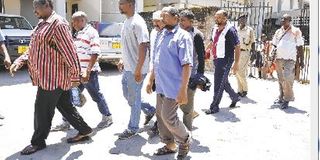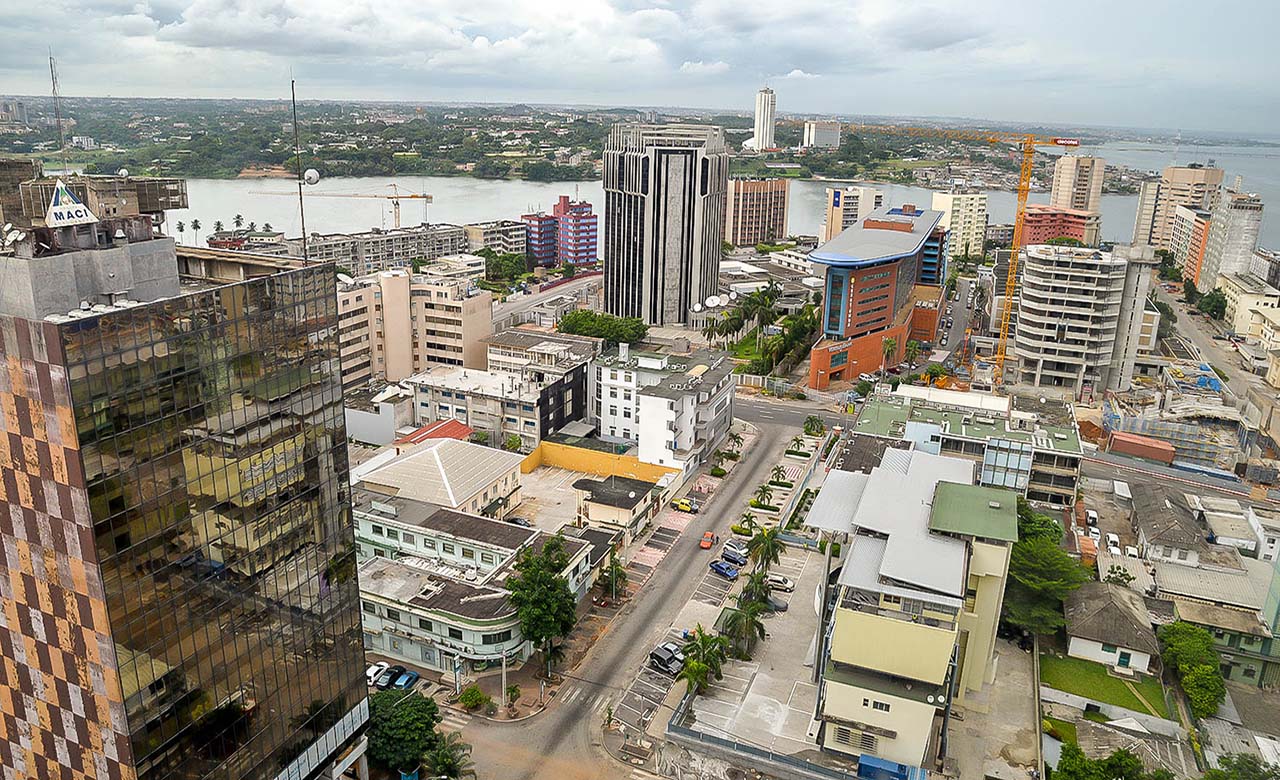Magufuli’s method in ‘madness’

Victims or villains: Some senior government officials appear in a Dar es Salaam court after they were accused of corruption and either dismissed or suspended from duty early this year.
PHOTO|FILE
What you need to know:
- His efforts to sweep out wasteful government spending, root out corruption and discipline lazy public servants seem unfazed. During the period he has sacked dozens of senior public officials for things like refusing receiving government’s salary.
Dar es Salaam. Seven months after President John Magufuli ascended into the highest office of the land uncertainty persists over what his style portends for the Tanzania’s future.
His efforts to sweep out wasteful government spending, root out corruption and discipline lazy public servants seem unfazed. During the period he has sacked dozens of senior public officials for things like refusing receiving government’s salary.
But he actually seems committed to ensuring Tanzania moves forward in as far as government’s delivery of social services is concerned and has helped to build the image of a rare kind of a politician – the one who walks the talk.
And his war on corruption and embezzlement has endeared him to many Tanzanians, especially the poor folk who regard him as the new crusader.
Despite the good intentions, President Magufuli’s style makes some people uncomfortable. In fact, a section of stakeholders in the business and political cycles and the academia, are still trying to decipher his style, seven months down the line.
The common thinking among the elite is that the President is impulsive, acting without thinking things through.
His dramatic style is also a source of concern for others who view it as a perennial campaign mode. The views of this group on Magufuli’s style have been highlighted in The Economist’s recent article “Government by gesture.”
In the article, the magazine offers an uncomplimentary assessment of President Magufuli’s leadership style, calling it “impulsive.”
The article articulates mounting concerns, even impatience, of the elite on the impact President Magufuli’s forceful shake-up of the status quo might have on Tanzania’s immediate socio-economic future.
The magazine alleges in the article that President Magufuli’s single mindedness plans to increase government revenue following the US corporation’s withdrawal of aid is the reason the formerly busy Dar es Salaam port is now almost empty.
The President Magufuli’s style, therefore, could be detrimental for business and might end up making Tanzania less competitive for investments in the long-run.
Citing businessmen, who find themselves billed for taxes they have already paid years back, the magazine says it is a pity President Magufuli has continued to live to his “Bulldozer” nickname instead of dealing with “structural” issues by way of building and reinforcing institutions.
President Magufuli has repeatedly addressed concerns over his leadership style. Speaking to judges at the Law Day celebrations in February, President Magufuli addressed directly the concerns, arguing that he is compelled to act forcefully by the rot and inefficiency he found in government.
“I am neither mad not a dictator,” he said, refereeing to criticism from some politicians that he acts like a mad dictator.
He explicitly said that the impromptu sacking of public officials is to send a message that it is no longer business as usual.
He went ahead and recited a litany of ills he found in government, which necessitate his style, including tax evasion, theft at the Dar es Salaam Port, ghost workers and massive swindling at the National Identification Authority (Nida).
And on Thursday, just two days before The Economist’s article was published online, President Magufuli doubled down in defense of his style and actions.
Addressing a contractors’ registration board meeting in Dar es Salaam, President Magufuli declared that he will continue with his governance style till things improve. He said:
“If you see people wondering [about his determination], it is because they are used to business as usual. They thought I will be part of them. Never! Not me! I better give up the presidency and return to the village than being a President and entertain the rot that is in this country. I am saying never.
“I will deal [with the incompetent] squarely. If it is opening the boils [sacking public officials], I am ready to do it every day. People must change. We must change. That is my direction and I will never change. And I am thankful Tanzanians pray for me. And may the Good Lord guide me, for he is the one who gave me this job. No human beings. I am ready to defend the downtrodden even if it will mean sacrificing myself…
“To public servants I say again, we must change. There is no short-cut. No one will survive thinking this is a temporary situation. This is permanent. It is permanent and unchangeable. We must continue with the same spirit to bring back Tanzania’s lost prestige. Of recent, many investors have been trooping to the country, which even encouraged me to double my efforts. You voted for me to so that I deliver for you. You did not vote for me so that I join the corrupt club. This is our country. We were born here. We will die here.”
Despite the President’s defense of his style and his actions the question stakeholders ask is whether his actions are thoroughly thought out or are taken impulsively on the justification of cleaning out the rot in government.
Is there method in madness as Shakespeare would tend to ask? Does the end justifies the means in Magufuli’s eyes?
What about the fact that the rot he is so determined to clean has been caused by the same party that nominated him as The Economist alluded to in the article, calling CCM “thuggish and undemocratic”?
Is he breaking rank with the CCM’s establishment? Is this what he meant when he said it is the “Wazee” – senior citizens -- who have brought us where we are today when he addressed contractors on Thursday? It remains to be seen.




